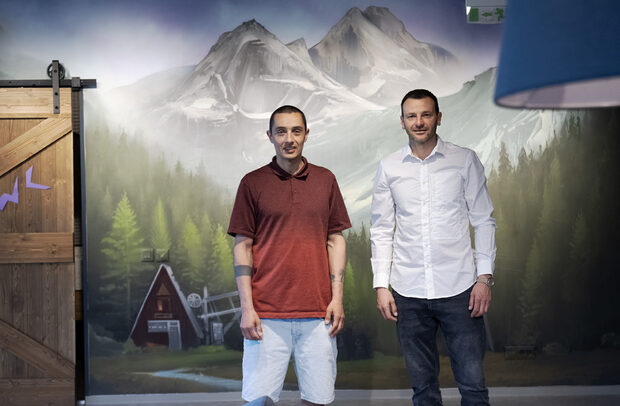Nine years after Uber was forced to shut down its car sharing service in Bulgaria, the company announced it will soon be closing its software unit in Sofia, which employed about 90 people over the past decade (77 at the end of March). The work of the Bulgarian engineers will be taken over by the company's office in India, with only the team of product managers in Sofia to be retained, according to Capital weekly sources. This would leave about 10 people left to work remotely for Uber. The rest will get benefits of four months' salary or more, depending on their position. Some will also have the option to continue their Uber careers in offices in the Netherlands or India. Key functionaries will continue to work until September, when the office will officially cease operations.
"Over the coming months, Uber will aim to support all affected employees as they seek other opportunities within the company," the company told Capital weekly.
Uber's software office in Bulgaria opened in 2015, just months before the Commission for Protection of Competition (CPC) and subsequently the Supreme Administrative Court (SAC) stopped the company's carpooling service under the pretext that they were creating unfair competition to taxi companies. At the time pressure from the taxi lobby was blamed for the decision. Later, the CPC showed its double standards by allowing the Russian company Maxim, which operates on the same principle, to continue operations undisturbed. Technically, the CPC suspended one of Maxim's companies in 2019, but the Russian company's work continued through other legal entities and is still active to this day.
Despite the exit of the core business, Uber continued to develop its software unit and for 2022 the revenue of the company Uber Bulgaria Software and Development reached 20.3 million levs.
The product is successful, but also complete
The paradox in this case is that the Bulgarian office is closing not for economic reasons, but because of its own success. The local engineers were developing one of the company's four main products - software to address the problem of the tons of financial documents - invoices, receipts and more - coming in and out of the company every day. According to Capital weekly's sources, the company can now afford to close the Bulgarian office because the product is ready and additional development and support can be provided by offices in other countries.
Uber's problems in Bulgaria were already visible at managerial level. In November 2023, Ivan Atanasov, the office manager, left and took over the newly opened office of the global software giant Redis in the country. Uber then launched a public search for a manager, but one was never hired.
An internal company source told Capital that at one point Bulgaria had the opportunity to become a critically important unit in Uber's ecosystem, on par with the company's Amsterdam office. The center in Sofia was very efficient, especially given the lower costs compared to Western Europe. Ultimately, this did not happen because of internal company dynamics.
The closure of Uber's office in Bulgaria comes at an awkward time for the country's software sector whose rapid growth of the past five years has halted because of surging costs for programmers' salaries. Uber is not the first major international company to shut down or downsize in Bulgaria. At the end of 2023, Broadcom closed the deal to acquire VMware, whose Bulgarian office is the largest software company in the country, and began mass layoffs of hundreds of people. The overall demand for developers has also been shrinking since last year, and so far this trend is holding. However, former Uber engineers will probably have no problem finding a new job because of their experience in a company of similar rank.
Uber is a publicly traded company with a $135 billion market cap and 30,000 employees worldwide. The company's annual revenue for 2023 was $37.2 billion, with a net profit of $1.1 billion.
Nine years after Uber was forced to shut down its car sharing service in Bulgaria, the company announced it will soon be closing its software unit in Sofia, which employed about 90 people over the past decade (77 at the end of March). The work of the Bulgarian engineers will be taken over by the company's office in India, with only the team of product managers in Sofia to be retained, according to Capital weekly sources. This would leave about 10 people left to work remotely for Uber. The rest will get benefits of four months' salary or more, depending on their position. Some will also have the option to continue their Uber careers in offices in the Netherlands or India. Key functionaries will continue to work until September, when the office will officially cease operations.
"Over the coming months, Uber will aim to support all affected employees as they seek other opportunities within the company," the company told Capital weekly.












